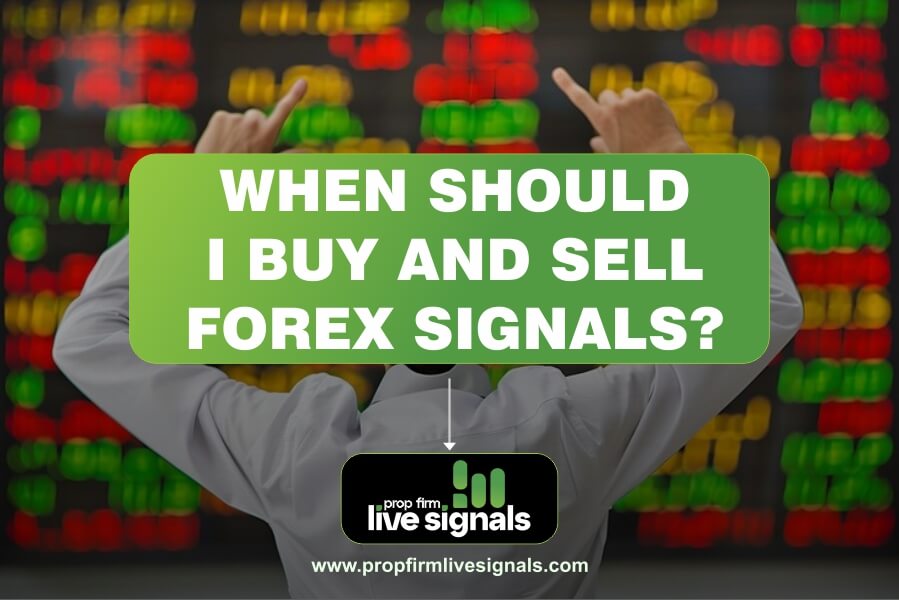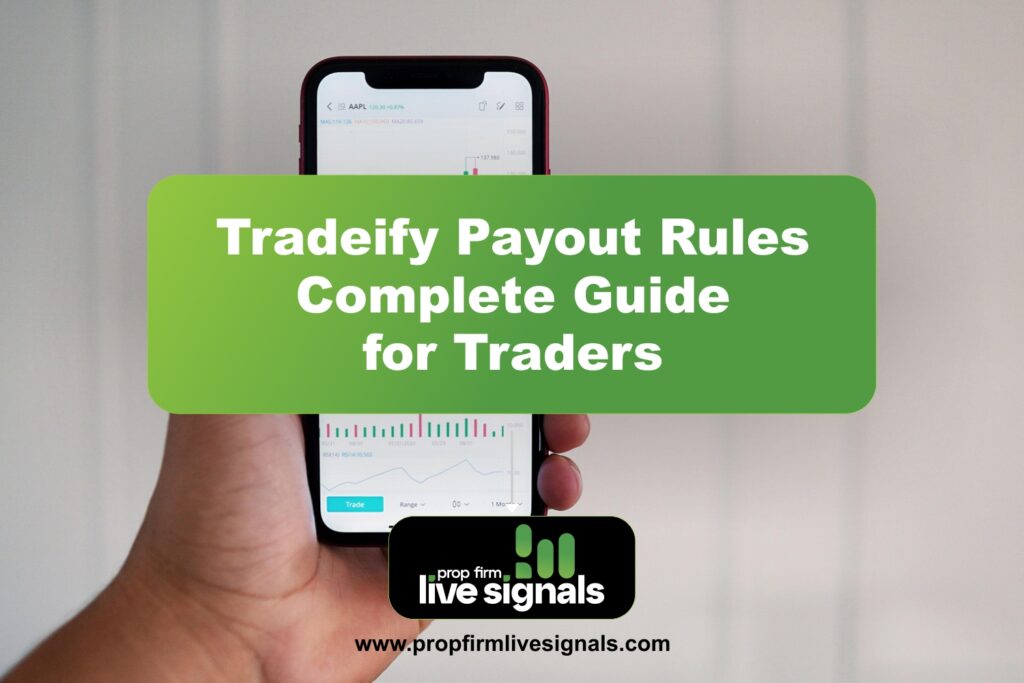When should I buy and sell Forex signals? Buying and selling in forex is speculating on the upward and downward price movements of a currency pair, with the hopes of making a profit. All forex trading involves buying one currency and selling another, which is why it is quoted in pairs. You would buy the pair if you expected the base currency to strengthen against the quoted currency, and you would sell if you expected it to do the opposite. In this article, we delve into the importance of timing trades in the aspects of buying and selling of forex signals and explore effective strategies for achieving optimal results.
The Importance of Timing in Forex Trading
Timing plays a pivotal role in forex trading for several reasons:
- Market Volatility: Forex markets are traditionally very volatile in nature, price changes can come at the blink of an eye and might be susceptible to a wide variety of economic indicators, geopolitical events, and even market sentiment. Timing within a strategy allows traders to take advantage of volatility, where they attain entry and exit positions at the right times.
- Liquidity: Liquidity varies throughout the trading day. It is at its best when different trading sessions are overlapped, such as during London/New York overlap. The speed of execution is way better while the prices are more stable during instances of high liquidity, hence minimizing the occurrence of slippage in any trade.
- Price Patterns and Trends: Analyzing price patterns and trends allows the trader to judge entry and exit points corresponding with the momentum and market sentiment. Traders will look to open a trade when favorable patterns arise or a trend is in continuation to maximize their potential profit.
- Economic Releases: Events that move the market include employment reports, GDP figures, and interest rate decisions. Timing trades correctly around key releases of economic data enables traders to profit from the market reaction and to take advantage of temporary opportunities.
When Should You Sell Based on Forex Signals?
It is very critical in forex trading to sell at the right time, usually aiming to maximize profit with limited loss. Forex signals can serve as a guide for you, but knowing when to sell would depend on several factors.
1. When the Signal Provider Recommends It
- Following the signal: Traders usually sell when the provider of the signal suggests it is time to close the position. Forex signals are normally given with target prices, Take Profit levels as well as stop-loss levels that are predetermined to close the trade at a specific point.
- Take Profit Reached: In the case where the price reaches the preset profit level, TP, this could prove to be one sure indicator to sell.
- Stop-Loss Triggered: If the trade goes against you and hits the stop-loss level, it’s time to sell to cut losses.
2. When Market Conditions Change
- Major news or events: In cases of sudden market events or economic news, such as announcements from central banks or geopolitical events, this could enormously affect the values of currencies. You may want to consider selling for capital protection in such cases, even when the signal has not yet reached the target or stop-loss.
- Changing trends: If the market indicates any reversal signs-for example, major technical indicators like moving averages or trend lines suggest that the trend is probable to reverse-then one must close the trade better.
3. Confirmation via Technical Indicators
- Divergences: The indicators may show divergences, such as RSI or MACD, hence an upcoming reversal. In such a case, one can sell in advance to avoid losses when the signal is full.
- Support and resistance levels: The price should reach an important resistance level that may not be able to break higher.
4. When You Need Liquidity
- Cash needs: If you need liquidity for any reason or any other opportunity that requires your money free, you should sell on practical considerations over the signal.
When to Buy Based on Forex Signals?
Forex signals indeed present various opportunities to buy-or sell-in the market. However, timing is one of the major things that matter most towards your success in trading. Here are key points to know before you buy using forex signals:
1. Confirmation of Market Conditions
- Alignment with Trend: The Forex signals often work best when they appear in the direction of the larger trend. Assume the general trend is upwards, and a signal indicates buy; this can be a sure deal. The buy in the direction of the trend will enhance the possibility of success.
- No Consolidation Trading: One should not be seen entering the market when indications of a range or when the market is consolidating. One can wait until he gets a clear direction to buy.
2. Technical Analysis
- Confirm the Signal: Look for confirmation of signals in some technical indicators like moving averages, RSI, or MACD. The more the confirmation through various factors, the stronger the signal.
- Support and Resistance Levels: Buy signals appearing near important levels of support provide greater potential for a profitable trade because those are areas where the market usually bounces back.
3. Risk Management
- Risk-to-Reward Ratio: That the signal is offering an attractive risk-to-reward ratio at 1:2 or better; meaning that for every dollar you risk, you want to make two dollars or more in profit.
- Position Sizing: Enter with the appropriate position size that suits your risk appetite. Many times, even the best buy signal can result in a loss if you are over-leveraging or taking too much risk.
4. Timing the Entry
- Signal Freshness: This is the timing when the signal was issued. Sometimes, signals are time-sensitive, so being prompt is pretty crucial. If you get it late, or if the market moved already considerably, it’s better to wait for another opportunity.
- Market Hours: Respect London and New York hours of trading as the two busiest sessions in forex due to its best liquidity during this time. Buying at these sessions may also be able to generate a more seamless price movement.
5. Sentiment and News
- Avoid Major News Releases: In case a buy signal is given out on the eve of a significant news release either due to central bank announcements or major economic data, it will be good to wait after the news and avoid unexpected volatility.
- Market Sentiment: Understand the bigger market sentiment. In case market sentiment comes in conflict with the signal, one may want to go slow on buying. You should only buy based on forex signals when assured that the market trend supports the signal, the technical analysis confirms it, and proper risk management is observed. In the end, understanding the market conditions and timing will be the factors that allow one to capture a high probability of the signal’s potential. Always make sure the risk-to-reward ratio aligns with your trading plan, and avoid trading during highly volatile events.
Common Pitfalls When Using Forex Signals
Over Reliance on Signals
The most dangerous pitfall a trader finds himself in is when he becomes completely dependent upon professional Forex signals. While the signals do, in fact, carry a good deal of valuable information, they by no means should completely replace any trader’s understanding of the market. Complete reliance upon the signals steers a trader away from critical thinking and the development of their own trading strategies. Signals are to supplement but not replace a trader’s decision-making process, wherein he or she conducts his or her verification through research and analysis before making the actual trade.
Lack of Knowledge
Getting into forex without proper understanding of how the market works is a sure recipe for disaster. Most of these traders jump into the market with follow-the-signal kinds of approaches, without ever knowing why such a signal would exist in the first place. Such ignorance may cost them losses in the event of any unexpected movement of the market, or when the market moves opposite of the signaler’s expectation. To avoid that, traders should dedicate time to learning about the basics in forex trading, technical analysis, and what drives currency rates.
Ignoring Risk Management
Risk management is the cornerstone for any trader’s success. Several traders become careless about the tenets of risk management while using professional signals. Even the most apparently valid signal cannot help the trader get rid of some uncertainties in the forex market. Traders should define their risk tolerance, set stop-loss orders, and maintain position sizes that avoid steep losses which may wipe out one’s trading capital.
Lack of Diversification of Signals
Depending on a single source of professional Forex signals can lead to one-sidedness in your trading strategy. You will have to diversify your sources of signals to gain a wider perspective on the market. Signals from different providers may follow different methods and expertise, and integrating these signals can lead to better-informed trading decisions.
Ignoring Current Market Conditions
Conditions within the market are changing from time to time, and what may work in a given period will not work during another period. Among traders, it’s very common to get into this mistake of keeping aside present market conditions and believe in the signals that worked well during different times. Successful traders adjust to the change in dynamics within the marketplace, where they use their signals with consideration of bigger market trends and economic events.
Lack of Continued Learning
Forex trading is the sphere that’s continuously developing, and it is precisely for this reason that successful traders are always aware of the latest market trends and strategies. Failure to continuously learn means stagnation, and more probably, missed opportunities. A trader should always seek new information from webinars, reading analysis about the market, and perfecting his strategy over time.
Lack of Patience and Emotional Trading
No trading plan is profitable if one is impatient or trades emotionally. A trader who is impatient may end a trade when its signal is fired well before the market has much time to unfold. An emotional trader may be afraid or greedy and act on impulse against the advice of the signal. The discipline and emotional control that may be developed avoid these traps.
Frequently Asked Questions
How I Manage Risk When Using Forex Signals?
- The backbone of forex trading is risk management. Knowing the market, being in control when using leverage, and having a well-articulated trading plan allows one to minimize risks while maximizing potential rewards. Sticking to a favorable risk-reward ratio, using stops and limits, managing one’s emotions, and knowing about events in the market will better help you through the market. Finally, you will practice your skills in a no-risk environment with a demo account.
Can I Customize Forex Signals to Your Trading Strategy?
- Personalizing forex signals is one of the intelligent ways to bring them into line with your trading strategy. Whether it is adjusting the risk level to suit your needs, specializing in specific currency pairs, or adding some confirmation through technical analysis, be rest assured that tweaking signals to suit your taste will similarly get them dancing to the tune of your overall trading strategy. By personalizing it, you are in a better position to be in full control, make decisions that are well calculated, and thus maximize profitability.
What Are Forex Signals?
- Forex signals are a signal or an alert of an analyst or an automated system that comes in the form of trading signals that are likely to occur based on a given set of criteria such as Technical analysis, market trend, and economic news among others. Such signals normally point at the proper time for purchasing or selling a currency pair and at what prices. It might also consist of the stop loss and the take profit points, which assists the trader to minimize his/ her risks and profits.
How Do Forex Signals Work?
- A Forex signal may be viewed as the forecast or signal of any expert trader or online signal-providing application about when and in which direction a given currency pair is expected to move in the forex market. Such signals can also be of immense use when one makes trading decisions for currency pairs, and includes, among other things, the name of the currency pair, the entry price, the stop loss level, and the take profit level.
Should I stick to forex signals for my trading activity alone?
- Signaling is a software program that transmits short messages to the user. Signals can be constructive to forex traders in their trading activities, but they must always have other trading skills to use together with them. It is an indispensable condition to get all your investment decisions made more comfortable through the validation of your broker before opening any operations with a great amount invested.
Can I rely solely on forex signals for trading?
- Although forex signals are a great tool for uncovering the next big money moves, plowing everything into them may not be a very prudent way to trade. Besides that, you should learn about the market, carry out the technical and fundamental analysis, and acquire skills such as selling and buying various financial products. Obtaining valuable knowledge and this feedback one can bring you to the right trading decisions and prospects of making substantial returns.
Should You Always Follow Forex Signals?
- Forex signals could be a perfect tool for traders, but one should never get into them blindly. There is always consideration in terms of the quality of a provider, compatibility with your own trading strategy, and whether the signal fits into the current market conditions. Signals have to be integrated with your own analysis, proper risk management, and experience in order to arrive at better-informed trading decisions.



